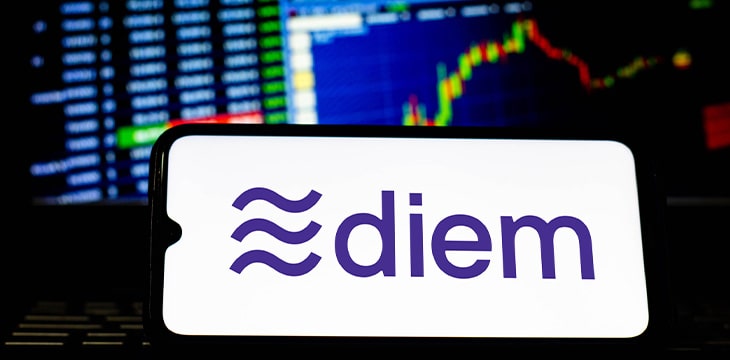
|
Getting your Trinity Audio player ready...
|
Mark Zuckerberg’s stablecoin ambitions appear to be coming to an unceremonious end, with his Diem project folding and selling off its assets. According to sources, Diem is looking to sell its assets for $200 million after being frustrated by U.S. regulators who have been united against the project.
Announced in 2019 and back then known as Libra, Diem was hailed as a new and user-friendly stablecoin project that would leverage Facebook’s network to become even bigger than the likes of Tether and USD Coin. Zuckerberg backed the project all the way, even making appearances before Congress to defend it.
However, despite Zuckerberg’s efforts and having the backing of some top companies such as Andreessen Horowitz, Singaporean state-owned investor Temasek, Coinbase, and Union Square Ventures, the project just couldn’t crack it with regulators.
After two years of being frustrated, Facebook, now under Meta Platforms Inc., has reportedly given up on its stablecoin ambitions. A report by the Wall Street Journal has revealed that Diem is in talks with Silvergate Bank to sell the project. Citing sources with knowledge on the matter, the outlet claims that Diem has been discussing with investment bankers how best to sell its intellectual property and hand over the engineers who developed the project.
Bloomberg further reports that Diem has been working with the California-based bank on the Diem project for some time. The two parties had reportedly struck a partnership in 2021 to issue the stablecoin, with Silvergate, a regulated banking entity, being charged with the actual issuance.
The U.S. Federal Reserve was reportedly not on board with the plan, and after a lengthy back and forth between the three parties, the Fed told Silvergate that it couldn’t sign off on the project. The bank ended up backing down, afraid that the Fed could crack down on it at some time in the future.
The $200 million sales are mainly aimed at recouping some of the funds that the investors have put in and refunding them. According to one of WSJ sources, Facebook has invested the most capital and owns about a third of the project. The other firms, which range from VC firms like a16z to digital currency firms like Coinbase to tech firms like Uber, own the rest, but it’s still unclear which companies invested and which didn’t.
For the longest time, regulators have pegged their resistance towards Diem on their distrust for Big Tech—especially Facebook, whose track record with data protection isn’t the most impressive. Giving a private company that much power over what could potentially be a currency available to billions through Facebook and its subsidiaries like WhatsApp and Instagram was deemed as a risky move by Congress, the Fed, and other financial watchdogs.
Most recently, U.S. regulators have become clearer about stablecoins. The President’s Working Group on Financial Markets, led by Treasury Secretary Janet Yellen, released a report on stablecoins, calling for tougher regulations. The group recommended that stablecoin issuers should be regulated like banks and adhere to similar strict guidelines. This further blew away any chance that Diem would ever see the light of day.
Zuckerberg and his team seem to have realized that the end was nigh for Diem as their strategy started shifting in the past year. Novi, the project’s wallet formerly known as Calibra, announced that it would launch without Diem and instead tap Paxos Dollar, yet another stablecoin.
Even this didn’t appease regulators who urged Facebook to shut down the project. In yet another blow, David Marcus, the project’s lead and co-founder, left Facebook recently.
Watch: CoinGeek New York panel, Tokenized Assets, Stablecoins and Custody with BSV
Recommended for you
Lorem ipsum odor amet, consectetuer adipiscing elit. Elit torquent maximus natoque viverra cursus maximus felis. Auctor commodo aliquet himenaeos fermentum
Lorem ipsum odor amet, consectetuer adipiscing elit. Accumsan mi at at semper libero pretium justo. Dictum parturient conubia turpis interdum

 11-14-2024
11-14-2024 


